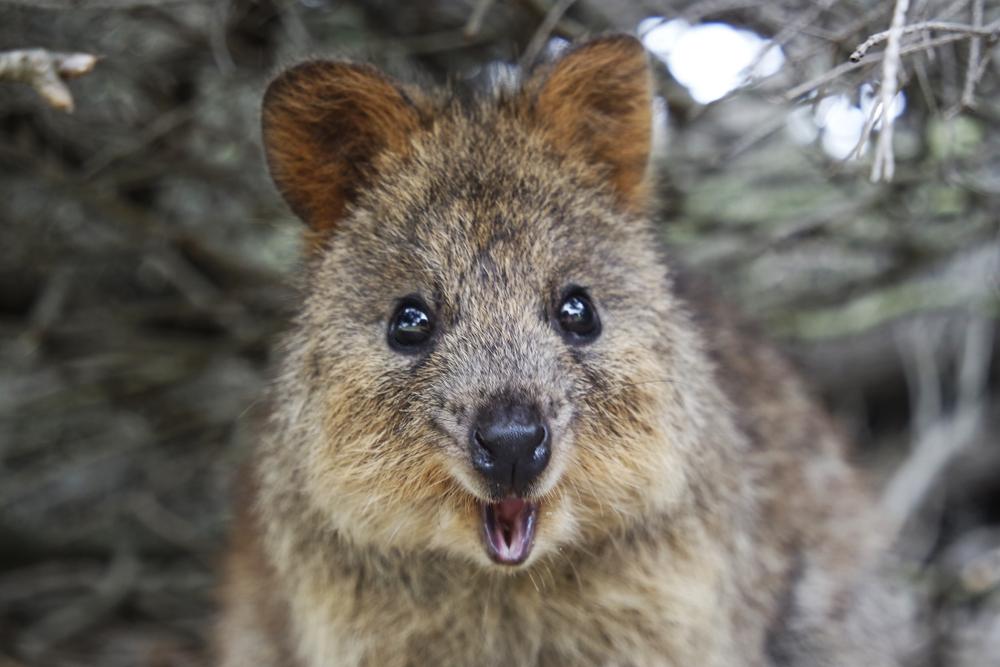Many of you might have come across photos of a marsupial with a beaming smile on your social media feed. Meet quokkas, which are rightfully termed as the “world’s happiest animal” for their unique grin.

Goglio Michele/Shutterstock

Many of you might have come across photos of a marsupial with a beaming smile on your social media feed. Meet quokkas, which are rightfully termed as the “world’s happiest animal” for their unique grin.
